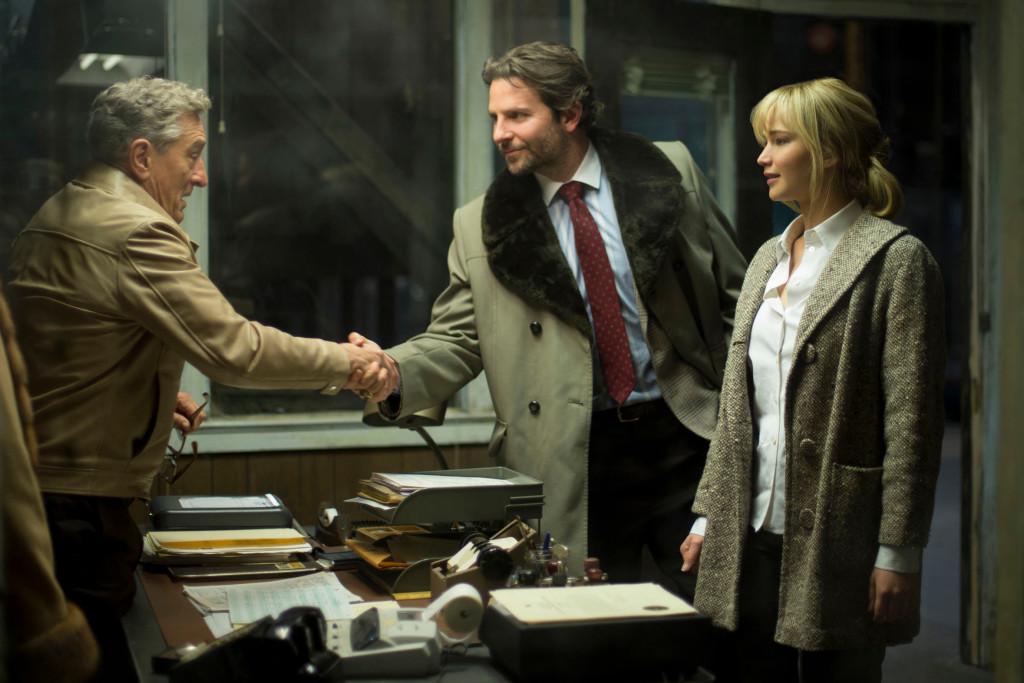Jennifer Lawrence has been known for her legendary, Oscar-winning roles in the past years: Katniss Everdeen in “The Hunger Games,” Tiffany Maxwell in “Silver Linings Playbook” and Rosalyn Rosenfeld in “American Hustle.” However, her role as Joy Mangano in the newly released film “Joy” should not be included in Lawrence’s list of successful roles. Not living up to its name, “Joy” suffers from unconvincing acting and a slow and unengaging plot.
“Joy,” directed by David O. Russell, follows the true story of Joy Mangano, a divorced woman in her 30s. Mangano has reached a low point in her life as she struggles to take care of her extended family that lives with her, including her parents, children and ex-husband (Édgar Ramírez), who still sleeps on her couch in the basement. Joy’s career takes off in the latter half of the movie when she creates an innovative new product, the first self-wringing mop, and launches the idea to sell this “Miracle Mop” nationally.
When the protagonist first presents the idea to Neil Walker (Bradley Cooper), an executive of QVC, he shoots it down completely until she pushes him to give her a chance. After a few failures, Joy sells thousands of her products nationwide, becoming more successful than she ever thought possible.
The theme of this movie is incredibly clear: The American dream is still alive, and keeping faith in oneself is an essential factor for success. Unfortunately, the way the movie’s message is communicated is unorganized and confusing.
The movie suffered from unentertaining and lagging scenes. If any audience member missed the first hour of the movie, they would not miss anything relevant because the plot was scrambled with no significant theme. The majority of the scenes were unnecessary, such as the one with Joy constantly arguing with her family. These unimportant interruptions take away from the main plot of her success story. The essential and enjoyable parts of the movie do not begin until the second hour of the movie, when Joy suddenly and randomly becomes filled with ambition and hope. However, the second half of “Joy” was amusing, well paced and understandable.
While Lawrence tries to portray the emotional struggle Joy goes through, her ability to make it convincing is limited. The role of Joy should have been filled by a more mature actress. Lawrence is a 25-year-old actress playing a woman in her 30s who is struggling to pay the bills, has been divorced for a while and is taking care of two children. While Lawrence does have an appealing presence on the screen, she was not the right fit for this movie.
Not only was Lawrence cast inaccurately, but the onscreen chemistry usually seen among Lawrence, Cooper and Robert De Niro, who plays Joy’s father, was not there. These three actors were known for their connection in the movie “Silver Linings Playbook,” and Cooper and Lawrence also had major heat in “American Hustle.” However, the three of them rarely had moments that enraptured the audience during “Joy.” De Niro and Lawrence’s characters constantly argue, which becomes tedious for the viewer. Cooper and Lawrence’s only relationship was as business partners, which was unconvincing considering their previous roles as lovers in “Silver Linings Playbook” and “American Hustle.” In terms of character depth and quality, Lawrence and Cooper’s acting performances left viewers wanting more. The acting in “Joy” was certainly not Oscar-worthy, unlike some of the actors’ previous performances.
While “Joy” tried to present an inspiring true story of a woman’s life-changing turnaround, it merely came off as a saga of all of the ways a person can be down on her luck. If one is looking for a movie that lives up to the joyous sounding title, prepare for an entirely opposite and disappointing experience.
“Joy” was directed by David O. Russell and written by David O. Russell and Annie Mumolo.




















